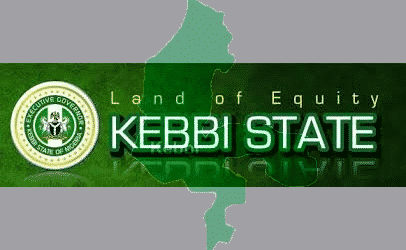I vividly recall a sunny afternoon when I went to our school, Federal Government College, Azare, Bauchi, Bursar’s office to pay my school fees for the second term, something in me squirmed as the Bursar returned my bank draft to me immediately after he opened his books and said to me that “KEBBI STATE” has paid my school fees for the whole year. I was then a JSS1 student in 1994, schooling in Bauchi from Lagos, three years after the State was created on 27 August, 1991. Kebbi State continued to pay my fees in that school till I got to SS2. I neither sought the scholarship nor did I know anyone at the Kebbi State Scholarship Board. The state just decided to go around government schools in Nigeria to seek its indigenous students in order to fulfil its responsibilities and up till today, the narrative hasn’t changed.
The foregoing simply illustrates a bird’s eye view of how the “LAND OF EQUITY” as it’s fondly called caters to both its indigenes, settlers as well as visitors or tourists. With the fullness of time, a state that started from a humble beginning, as it’s said that, in life it’s not how far but how well, is not only proudly 28 years today, but also has carved a niche for itself in the comity of states in Nigeria and beyond. Kebbi is a state in north-western Nigeria with its capital at Birnin Kebbi. The state was created out of Sokoto State in 1991. Kebbi State is bordered by Sokoto State, Niger State, Zamfara State, Dosso Region in the Republic of Niger and the nation of Benin. It has a total area of 36,800 km².
Kebbi State is mainly populated by Hausa people, with some members of Fulani, Lelna, Bussawa, Dukawa, Dakarkari, Kambari, Gungawa and Kamuku ethnic communities.
The state has 21 local government areas.
Kebbi boasts of the following tourist attractions; Argungu international fishing festival, Uhola festival, Karishi traditional settlement, tomb of Abdullahi Fodio, Girmace Shrine, Zulu, Alwasa battlefield at Argungu and Yelwa Museum of Archaeology. Other attractions are; Zuru Museum and Zuru Moving Rock at Akinkiya in Ngaski.
Kebbi State has four Emirates and they are; Argungu, Yauri, Zuru and Gwandu.
Kebbi State today, under the stewardship of our amiable and impeccably courteous public persona, Governor Abubakar Atiku Bagudu, has more than ever before, raised the bar of both governance and the economy of the state by spearheading Nigeria’s agricultural renaissance with a heavy focus on rice production, onions, tomatoes and a host of other agricultural produce making Kebbi State the incontestable leading light in Nigeria’s agricultural space and the hub of agriculture in Sub-Saharan Africa.
It’s on record that under the Senator Abubakar Atiku Bagudu’s administration, the state currently supplies over 70% of the total rice production for consumption in Nigeria, thereby reducing Nigeria’s hitherto dependence on imports. The state boasts of three high capacity rice mills as off-takers together with the state leveraging on strategic business collaborations where the yields are processed and distributed across the country and beyond. Recently, the state has partnered with G-B Foods Africa to establish a multi-billion naira tomatoes processing factory in Ngaski Local Government Area of the state. Therefore, the state now enjoys a stable political stability with its attendant economic prosperity.
Bala can be reached at [email protected]

 Join Daily Trust WhatsApp Community For Quick Access To News and Happenings Around You.
Join Daily Trust WhatsApp Community For Quick Access To News and Happenings Around You.



